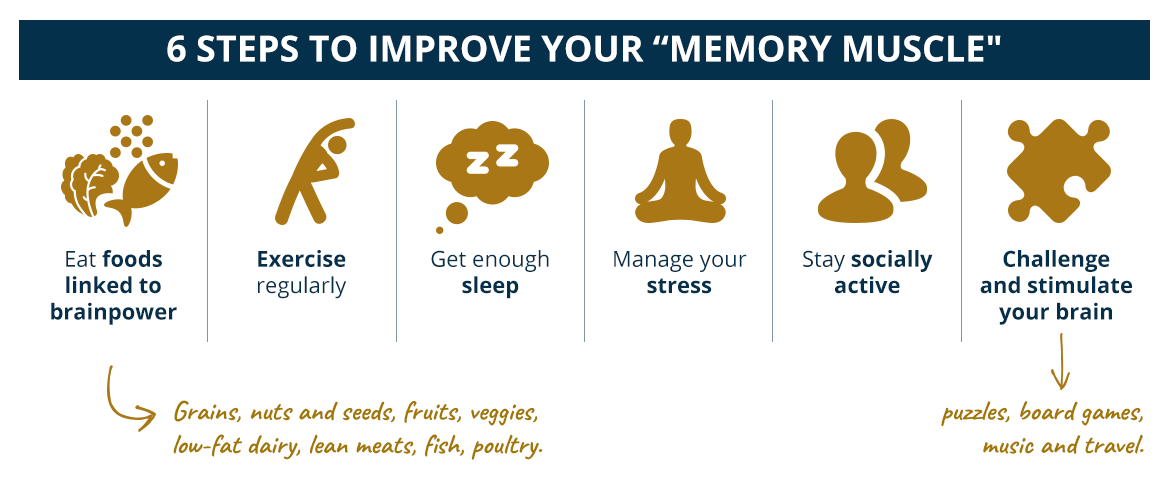Español
United States
Brain and Nervous System
Memory Loss? It Could Be “Digital Amnesia”
March 27, 2024
Estimated Reading Time: 5m

123 RF
Everyone forgets things from time to time. Memory is far from perfect and does not depend on our age. Some people can relate an anecdote from twenty years ago in meticulous detail or list the entire cast of a movie, while others are incapable of remembering their child’s birthday or the name of a relative. The human brain was not made to recall every single piece of information. In the same way that we delete e‑mails when our inbox is full, our brain gets rid of memories or data that it deems unnecessary in order to make space for more relevant information. So when is memory loss something we should worry about?
Contrary to popular belief, memory loss is not exclusively related to aging. Recent research consistently points to the technology as a principal cause of memory loss at an increasingly younger age.
Is your smartphone weakening your memory?
Can you remember your friends and family’s phone numbers by heart?
Do you know off the top of your head when your next dentist appointment is scheduled? We use our smartphones as agendas, calendars, Internet browsers, calculators, maps, and much more. These devices seem capable of taking over every single cognitive function in our lives, so we don’t have to worry about them.
But if smartphones and mobile technologies are powerful and flexible tools that facilitate daily tasks and are seamlessly integrated into our lives, there is a growing preoccupation about the impact of their constant presence on our ability to remember things, pay attention, and regulate our emotions. In an increasingly connected world, we tend to forget information that can be easily accessed at the speed of light via a digital device or the Internet‑‑a phenomenon known as “digital amnesia”, according to a study conducted by the UK‑based cybersecurity company Kaspersky Lab.
Based on a survey of 1,000 men and women in the United States between the ages of 16 and 55, the study found that almost half of participants believed their smartphone contains almost everything they need to recall and serves as a substitute for their memory.

Still, it seems that our brains are choosy with memories, remembering certain things above others. Around 70% of those surveyed could remember their significant other’s phone number; however, only 34% could call their son or daughter without checking the number, and less than 50% could dial their job.
Without glancing at the phone number or calling them automatically from their phones, 44% of participants couldn’t reach their siblings. More than half did not know their friends’ phone numbers and over 70% did not remember their neighbors’ phone numbers.
The study concluded that 91% of participants confessed to a dependency on the Internet and mobile devices as a tool to remember and as an extension of their brain. In terms of memory development, experts emphasized that depending less and less on the information stored in our minds can lead to the disappearance of these memories.
A different study, conducted by the McCombs School of Business at the University of Texas in Austin, suggests that the mere presence of a smartphone reduces available cognitive capacity and affects cognitive function, even if the person believes that they are dedicating all of their attention to the task at hand.
Smartphone use in children and teens
Digital technologies are particularly attractive to today’s children and teens, for whom many social interactions take place online. This generation is developing increasingly shorter attention spans due to its frequent engagement with technology at an ever younger age, according to a report published in the Journal of Child and Family Studies.

Smartphones and related mobile technologies can affect a wide range of cognitive domains, according to a study published in the journal Frontiers in Psychology. Although empirical data on the cognitive impact of smartphones is still relatively limited, understanding the potential consequences now is crucial to preventing them. An important area that requires additional research is the effect of smartphones on young children. Despite guidelines from the American Academy of Pediatrics, we still don’t know with certainty at what age a child should begin using a smartphone or the consequences of this usage during the early stages of life.
The technology isn’t fully to blame

Using digital technology for data storage and as an extension of our brains may have long term effects of which we are not yet fully aware. However, it is a fact that failing to exercise our memory is not the only factor that can lead to memory loss, slow cognitive function, and an increased risk of dementia. A sedentary lifestyle, poor diet, and lack of sleep can also affect our concentration and attention, as well as speed up loss of memory. The brain is like a “muscle” that needs to be worked out in order to stay strong, and physical and mental exercise go hand in hand. In fact, people who engage in aerobic exercise don’t just improve their cardiac output, but also enhance their mental health and work to preserve their memory.
Sources:
Frontiers in Psychology , “Smartphones and Cognition: A Review of Research Exploring the Links between Mobile Technology Habits and Cognitive Functioning”, Harvard Medical School, “Improving Memory”, American Academy of Pediatrics, “Media and Young Minds”
NAHGA Claim Services Data Breach Information
